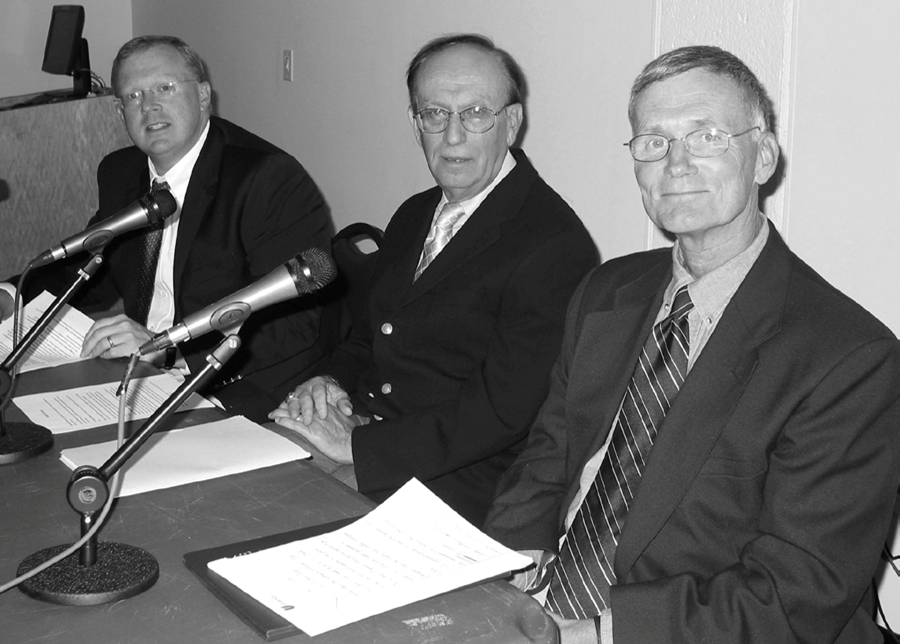By Ashley Gough | Editor-in-Chief

MWCC American History professor, Dr. William Hanna, and Legal Studies professor, Attorney Jim Korman, met in the South Cafe Monday September 17 to talk about the freedom of the press. Moderator Dr. John Fielding, Interim Assistant Dean of Academic Affairs, lead the discussion by posing questions about the ethics and history of this concept. The event was part of Constitution Day, a nationally recognized day in which education about our nation’s Constitution is required in all schools.
The discussion began with both men giving examples of court cases that dramatically impacted the history of the subject matter. Dr. Hanna brought up the groundbreaking case that took place in 1735, the libel trial of John Peter Zenger, printer of The New York Weekly Journal. Colonial Governor William Cosby had Zenger arrested on charges of seditious libel for printing negative information about him. Zenger was dismissed of the charges, citing truth as a defense for seditious libel. Although what Zenger printed about the Governor was offensive, it was true. Dr. Hanna discussed this case as setting a precedent for the freedom of the press.
Professor Korman discussed the 1964 case, New York Times Co. v. Sullivan. This case determined that the plaintiff in a defamation or libel case must prove that the publisher of the statement in question knew the statement was false or acted in reckless disregard of its truth or falsity. According to Professor Korman, this case helped control the many libel charges being brought onto newspapers as a scare tactic to keep them from printing damaging information about public officials. Both men spoke about the history of the freedom of the press and how even today there are struggles with the concept. One example was whether The New York Times should have printed a story in 2005 announcing the government’s use of wiretapping phone calls to track down terrorists. Professor Korman stated that he was inclined to look at the situation from a legal perspective, rather than from an ethics standpoint. He stated that the newspaper was within its legal rights to print such material, rights that even the government recognized by not trying to stop the publication. Dr. Hanna stated, “There is a difference between having rights and doing the right thing.” He stated that he didn’t know if the Times was right in publishing the information, but agreed that newspapers were a healthy check and balance for the government.
Comments are closed.